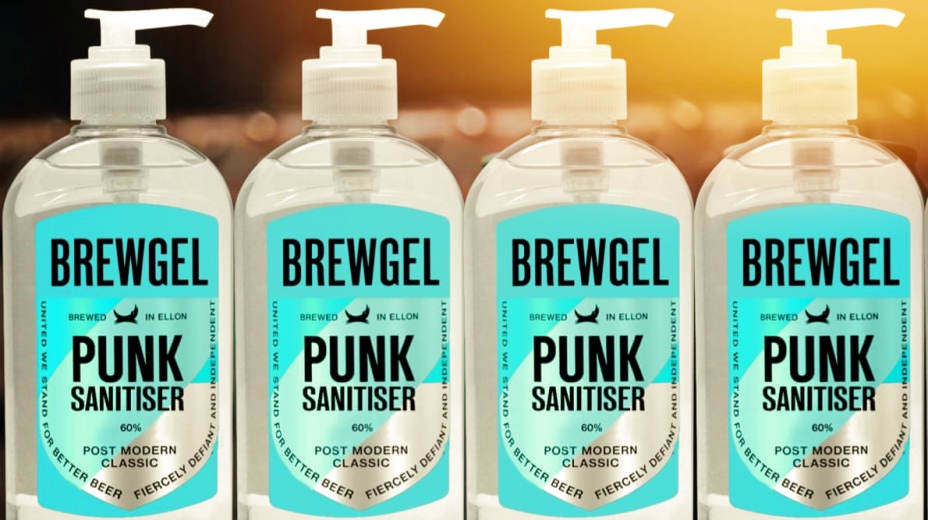
Covid-19 Has Helped Brands Discover their Purpose – But What’s Next?

At the end of 2019, Fjord predicted that the new decade would see businesses and brands face ‘total re-examination of their purpose and place in the world’. It was a core pillar of their Fjord Trends 2020 report. But even seasoned forecasters like the team at the Accenture Interactive design company couldn’t have predicted just how quickly it would happen.
It’s become something of a cliché, but Covid-19 has accelerated many changes that were either already happening (but slowly) or were overdue – and that’s just as true for brand purpose as it is for anything else, notes Mark Curtis, founder and Chief Client Officer at Fjord.
“Mainly businesses are being forced to act almost without thinking at considered speed over the last three months. So you have a, you know, my favourite examples are a luxury company making hand sanitizer and BrewDog making hand sanitizer,” he says. “
What those companies have done is, is almost without thinking, and certainly at a speed, which could not have been contemplated before the pandemic that you have found a new purpose they did not know they had and stepped into it.”
It could be argued that those companies like Burberry stepping in to make PPE have been an anomalous response in anomalous circumstances, but Mark reckons the altruism of Covid-19 will have knock on effects into how businesses prioritise going forward.
“Nobody would suggest that Burberry should continue to be in the business of PPE or that LVMH should continue to make hand sanitizer rather than perfume. But what will linger - a bit like the perfume - will be the memory that they did discover a purpose, which had social meaning. That memory will linger both with employees and with customers,” says Mark. “The consequence of that will be, um, a heightened focus on purpose as being at the core of a brand and what it is about.”
While some brands already had purpose, some had achieved purpose and some, through Covid, have had purpose thrust upon ’em, one can’t ignore that other demographic of brands that have used the crisis to opportunistically claim a purpose. Some brands that were quick to put out ‘socially distanced logos’ while at the same time failing to support their employees adequately.
“The logo example is a good one, because what it shows is if you're going to claim purpose, you are going to be interrogated on that purpose and, social media, is the forum where that, interrogation will take place. So there's no doubt that companies will have to build purpose from the ground up in a very authentic way, and you absolutely can't do it just by a CSR manoeuvre or by layering an overlay of purpose into, into advertising.”
Of course, social media cynicism is perhaps inevitable when it comes to businesses claiming some sort of social consciousness and moral or social purpose. Mark observes that the cyncism comes in two forms. One is a ‘higher order’ or ‘meta’ cynicism that pooh-poohs the notion of businesses having any form of purpose, and that sorting out social issues is the job of governments. To that, he suggests that as corporations have become more powerful over the past 50 years and governments have stepped back in many cases, it’s business world’s responsibility to engage with the society in which it exists. The other form of cynicism is a dismissal of their purpose due to missteps or mistakes – and while businesses should be subject to scrutiny, Mark suggests we have to get better at parsing the genuine mistakes from those companies with chronic mismatch between words and action.
“There just is not going to be a company around which has an untarnished halo,” says Mark. “We have to distinguish between those mistakes that everyone will make, and whether or not people are authentically and consistently and persistently over time trying to achieve the purpose that they've laid out for themselves.”
Looking forward to life post-lockdown and beyond – Mark prefers the phrase ‘the never normal’ to ‘the new normal’ – those brands that have discovered sense of purpose might find that it is put to the test as they fight for survival in a recession. “It's not a principle until it costs you money,” goes the evergreen Bill Bernbach quote. Mark points out that brands are facing ‘triple uncertainty’. There’s uncertainty about the epidemiology of the virus – how do antibodies work, can you catch it twice, when or will we get a vaccine? There’s economic uncertainty – how quickly will economies recover from lockdown and what will the long term effects and scarring look like? And then there’s human uncertainty – how will people react to the above and what is the long term sociological and psychological impact of the pandemic?
But for businesses to thrive, it’s about how they frame the uncertainty. “In the next five years, given that triple uncertainty - and I haven't even mentioned climate change- absolutely cannot look at the look at it and confidently say, ‘yes, they will be a new normal,’ because they're actually, probably won't be for about five years now,” he says. “Instead of thinking of that as being a source of a gloom, instead, we should be embracing it. I think it's a bit like taking a cold shower, you know, it's not very nice, but then you step out of it and you think, okay, I can deal with this and I can deal with today.”
And in that ‘cold shower’, it’s the ideal time to recommit to one’s purpose – it may well be that it becomes the only thing a business can be really sure of. And for those who have embraced purpose as a business driver, while it certainly is the time for a flexibility and agility at all levels of operation – Mark reckons that it isn’t the time to start doubting or second-guessing one’s purpose.
“I think that as we emerge into the never normal, it need to be really clear on your purpose, but I don't actually think you waiver from that purpose over time. I don't think at one moment, your purpose is to improve social outcomes. And the next moment you switch and say, actually, it's all about climate change. I think you do have to be pretty consistent in your purpose or else people will not give you the trust that you need.”













